TyrTeq
Your Partner in DIGITAL TRANSFORMATION
TyrTeq helps you in
![]() Identify and solve your key challenges
Identify and solve your key challenges
![]() Design a risk-free Digital Transformation strategy
Design a risk-free Digital Transformation strategy
![]() Develop innovative solutions with cutting-edge technologies, while optimizing existing assets
Develop innovative solutions with cutting-edge technologies, while optimizing existing assets
![]() Achieve resilience and protection against cyber threats
Achieve resilience and protection against cyber threats
![]() Ensure your solutions are scalable, interoperable, and fully compliant with regulations
Ensure your solutions are scalable, interoperable, and fully compliant with regulations
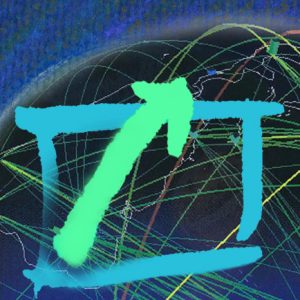
Digital Transformation enabled
by Five Key Technologies and One Emerging Technology
KEY TECHNOLOGIES

The Cloud
Adopt Cloud Computing services to deploy your applications and store your critical data. Make the right choice and select the Cloud that fits best with your requirements: technical, economical and operational. Embrace multicloud approach.
Validate the benefits of Cloud adoption
Elasticity : Rapid acquisition of resources (infrastructure IaaS, PaaS, SaaS)
Cost Optimization : Choose the best model (Pay per Use, Reservation, Auction)
Leveraging Innovation : Outsource Data Center management tasks, focus internal resources on Value Creation
Eliminate Vendor Lock-in : Achieve flexibility through a MultiCloud strategy and Cloud Federation
Big Data
Manage the end-to-end lifecycle of Data (real time and batch) from capture, to preparation, analysis, knowledge extraction, visualization and taking the right decision at the right time.
- Data – Fuel innovation
- Data – Accelerate progress
- Trends and sentiments analysis
- Know your customers’ profiles
- Better products targeting
- Increase conversion rate
- Increase your competitiveness


Artificial Intelligence
Unlock the Potential of Artificial Intelligence.
Drive rapid and insightful decision-making with cutting-edge AI, including the latest generative AI tools powered by large language models (LLMs).
- Advanced Content Analysis: Gain insights from text, images, graphics, sound, and animated videos
- Semantic Understanding: Extract meaningful insights from analyzed content
- Multilingual Content Creation: Easily generate publications, websites, and marketing materials in multiple languages
- Effortless Translation: Break language barriers with seamless translation capabilities
- Automated Code Generation: Streamline programming with AI-generated code
- Intelligent Chatbots: Develop contextual and personalized chatbots for enhanced customer engagement
Blockchain
We work with you to analyze the criteria for adopting a Blockchain.
Selecting the most sustainable Blockchain:
- Size of its infrastructure (number of active nodes)
- Type of consensus protocol (PoW, PoS, DPoS, PoH…) – resilience, energy consumption
- Developer community dynamics
- Availability of decentralized applications
General Services
- Access to an existing Application or develop a new community Solution
- Master the decentralized architecture and Web3 technology stack (applications, off-chain storage, wallet)
- Leverage Tokenization (FT and NFT representing RWA – Real World Assets and Digital Assets)
- Integration with your existing Information System
Specific Services
How to choose between a Private or Public Blockchain
Deploy a new application and Smart Contracts
Utilize existing services (DeFi, Traceability, Decentralized Storage)
Define Governance
Explore DAO (Decentralized Autonomous Organization) operation model
Navigate in a rapidly growing ecosystem (1000 chains, 30,000 protocols, 1,000,000 assets)
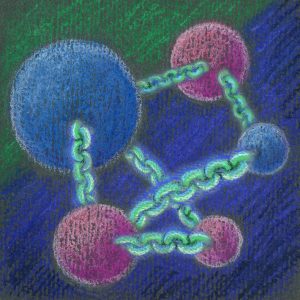
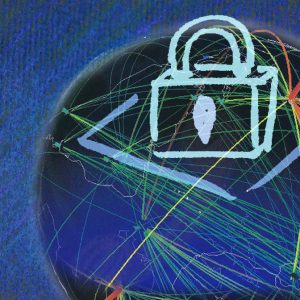
Cybersecurity and Digital Trust
We help you in assessing the benefits of Zero Trust Architecture strategy, in order to:
- Control user access, regardless of their location or device
- Protect Enterprise assets, operated on-premises or in the cloud
- Limit internal threats by controlling and reducing privileges
- Protect sensitive information using DCS (Data Centric Security) solutions
Service Deployment
- Data-Centric Security (DCS)
- Unified visibility based on analytics and AI
- Policy Orchestration and Management
- East-West Segmentation
- User Endpoint Hygiene
- Dynamic and Continuous Authentication
- Conditional Authorization
- Confidential Computing
- Improve visibility of resource inventory, configurations, communication flows, and user resource access scenarios
- Use this understanding to formulate and apply a comprehensive security policy
- Perform real-time and continuous monitoring and logging
Quantum Computing
Emerging Technology
Announced for over 30 years, the Quantum revolution is expected to lead to products capable of solving problems that are unsolvable with Classical Computing
While waiting for these products, we help you understand the potential of quantum computing and prepare for its deployment to solve real problems (better than classical computing), or to protect your critical data through new cybersecurity approaches.
Applications
- Combinatorial optimization– Logistics, planning, routing, traveling salesman problem
- Quantum chemistry – High-temperature superconductivity, Solid-state physics, Transition metal catalysis
- Nuclear physics – Medicine (imaging, radiotherapy), Energy (nuclear power plants), Archaeology
- Particle physics – Understanding of the universe, and Development of new materials
- Finance – Derivative pricing, Portfolio optimization, Credit Valuation Adjustment
- Machine learning – Tensor PCA, Quantum Neural Networks
Cryptography
- Deploy quantum-resistant encryption algorithms (PQC – Post-Quantum Cryptography)
- Develop communication networks for encryption key exchange (QKD – Quantum Key Distribution)
- Quantum Random Number Generator (QRNG)

DIGITAL TRANSFORMATION
Horizontal Applications
- Adoption of SaaS (Software as a Service) model that is more efficient and more economical.
- Integration of learning modules (Machine and Deep Learning).
- Integration of AI-powered chatbots, voice bots, and virtual assistants that are more efficient in the CRM Space for first-contact resolution.
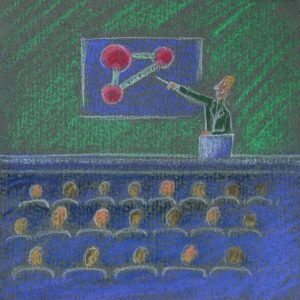

Vertical Applications
New Applications enabled by the Blockchain
If you are looking for one of the rich set of Blockchain applications, we will help you in analyzing the use case and decide on moving forward with an ambitious project.
New Blockchain/Web3-based Applications
Potential use in all sectors of the economy and public services.
Horizontal – sovereign identity management and « smart contract » for value exchange between individuals and institutions.
Decentralized Finance – DeFi – including multiple services (Decentralized Exchange – DEX, Borrowing, Staking, Mixing, Stablecoin, Oracle, Bridge, AMM)
Public services – notarization, land registry recording, issuance of various certificates and legal documents (which can be considered as credentials according to the W3C model), voting rights, …
Energy – management of energy production and exchange between consumers/producers promoting green energy
Transport/Mobility – management of vehicle tracking, maintenance and spare parts as well as charging certificates for electric vehicles. Adoption of the DPP (Digital Product Passport) established by the European Commission
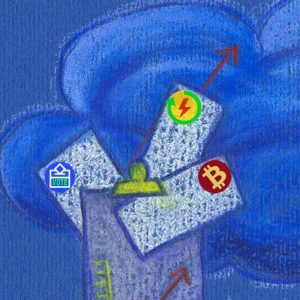
Logistics and supply – management of the complete chain, from production to consumption offering traceability and transparency. Deployment of the Digital Twin concept, and Digital Thread – for predictive maintenance and end-to-end lifecycle management.
Healthcare – Management of clinical trial monitoring, and exchanges between patients and medical-social establishments
Education – issuance of certified digital diplomas, dissemination and verification of references according to the models of the W3C consortium and the DIF foundation.
Artistic and editorial creations – content registration and secure distribution control with monetization possibilities without intermediation

Cloud Migration Plan
An essential step in the journey toward reaching your Digital Transformation objectives.
- Requirements analysis, and selection of generic Cloud Computing model (Public, Private, Hybrid)
- Comparative analysis of major offerings: Amazon AWS, Microsoft Azure, Google GCP, OVH, VMware, Orange, Alibaba
- Marketplace and DevOps tools analysis
- For global enterprises where a Multicloud approach brings more values, we propose:
- Design plan
- Selection of federation tools
- Support service requirements
- Vendor selection
- SLA definition
- Interoperability requirements analysis (for reversibility or vendor’s switching) according to EU regulations and rules of conduct
- Cloud standards adoption criteria: Model – ISO 17788, Interoperability – ISO 19941, SLA -ISO 19086
Global Travel Operators
Global Telco Operators
Global Retail Companies
Contact
Please send us a message
info@naffahconsulting.com
